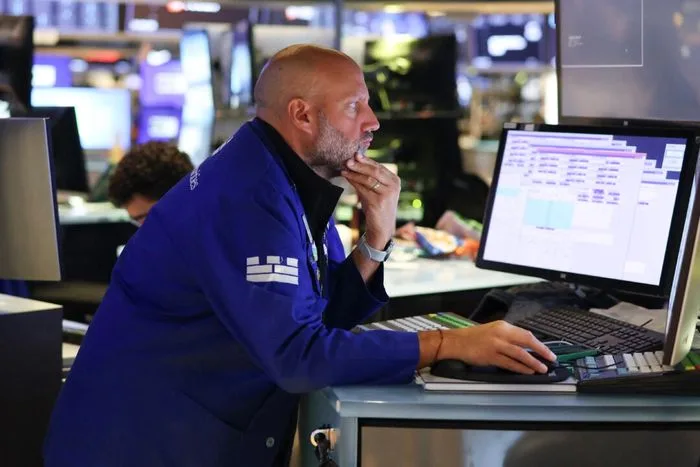By Panos Mourdoukoutas
U.S. stocks continued their winning streak for another week, with the S&P 500 Index, the Dow Jones Industrial Average, and the Nasdaq Composite Index hitting new highs, shrugging off mixed headlines on inflation and interest rates.
Meanwhile, investor sentiment over a parade of initial public offerings (IPOs) overshadowed a couple of earnings disappointments, helping the bulls gain the upper hand throughout most of the week.
The S&P 500 finished the week ending Aug. 15 at 6,449, up by 0.94 percent for the week and slightly below another record it reached on Aug. 13.
The Dow gained 1.74 percent to end at 44,946, a new record.
The technology-heavy Nasdaq gained 0.81 percent to 21,622, also a new record, while the Russell 2000 fared the best, soaring by 3.07 percent.
Market volatility, as measured by the Chicago Board Options Exchange Volatility Index (VIX), remained steady at about 15, pointing to continuing market stability.

Stocks opened mixed on Aug. 11 amid profit-taking after the previous week’s solid gains and a disappointing earnings report from Monday.com.
Trade remained bound throughout the day, with broadly followed equity averages ending mixed, ahead of a streak of inflation reports.
The situation changed on Aug. 12, with bulls getting the upper hand following the release of the consumer price index (CPI) report, which showed that consumer headline inflation remained steady in July at an annual rate of 2.7 percent.
Monthly inflation rose by 0.2 percent, below June’s 0.3 percent gain, and in line with expectations.
Core inflation, which excludes food and energy, edged higher in July to 3.1 percent, up from 2.9 percent in June and ahead of market forecasts of 3 percent.
Still, a steady headline inflation reading brought relief among investment analysts concerned with the impact of tariffs on consumers, reviving talk of an imminent interest rate cut by the Federal Reserve in September.
“After a disappointing July jobs report and a dismal revision to the prior two months, investors are currently pricing in a rate cut for the Fed’s next meeting in September,” Bret Kenwell, a U.S. investment analyst at eToro, told The Epoch Times. “The only thing that could change that is a spike in inflation. While today’s print isn’t necessarily rosy, it’s unlikely to change those rate-cut expectations.”
David Russell, global head of market strategy at TradeStation, said he believes that the July inflation reading was not great but that it could have been worse.
“Lower energy prices kept a lid on the worst of the price increases, but we still saw core CPI return above 3 percent,” he told The Epoch Times. “Wall Street is breathing a sigh of relief, with September in play for a Fed rate cut.”
The prospect of lower interest rates turned the risk button on for traders and investors, helping push all major equity averages to close sharply higher, led by the small caps, which are more sensitive to interest rates than large caps.
Still, trader and investor enthusiasm for an imminent interest rate cut was tempered by the end of the week, as two additional measures of July inflation reports painted a different picture.
The producer prices index (PPI), a measure of wholesale inflation released on Aug. 14, rose at an annual rate of 3.3 percent in July, well above market forecasts of a 2.5 percent advance. This was the highest producer inflation in five months.
The Michigan five-year inflation expectations in the United States released on Aug. 15 came in at 3.9 percent in August, up from 3.4 percent in July.
“PPI was much stronger than expected and suggests that tariffs are causing inflation, which adds lots of complexity to the Federal Reserve’s potential rate cut plans this fall,” Clark Geranen, chief market strategist at California-based CalBay Investments, told The Epoch Times.
However, he said he believes that sellers of products are absorbing most of the impact of tariffs.
“The fact that PPI was stronger than expected, and CPI has been relatively soft, suggests that businesses are eating much of the tariff costs instead of passing them on to the consumer,” Geranen said. “Businesses may soon start to reverse course and start passing these costs to consumers.”
Meanwhile, the pickup of IPOs helped overshadow disappointing earnings guidance from CoreWeave, Applied Materials, and Cisco Systems, helping equity markets end in another winning streak.
Looking ahead to the next week, investors will get some clarity on the direction of monetary policy when Fed Chairman Jerome Powell speaks at the annual central banking conference in Jackson Hole, Wyoming.
Rich Mullen, founding partner and CEO of Massachusetts-based Pallas Capital Advisors, noted that stocks have experienced a significant boost over the past few years, driven by robust consumer spending and substantial corporate investment in artificial intelligence (AI).
However, he has seen consumer spending softening in recent months, which poses a threat to stock prices.
“It’s unclear if the stock market can rely solely on corporate AI spending as its source of fuel,” Mullen told The Epoch Times.
“A slowing consumer is an underappreciated risk for stocks, as the labor market is showing signs of cracks and consumers are exhausted from high prices.”
In this environment, Mullen prefers small- and mid-cap industrial stocks, as well as stocks tied to the energy demand of AI.
“Stocks tend to see corrections in the early fall months, and while seasonal trends are by no means set in stone, we encourage investors to be vigilant and look out for pullbacks, which can create good entry points for investors who are holding too much cash,” he said.





